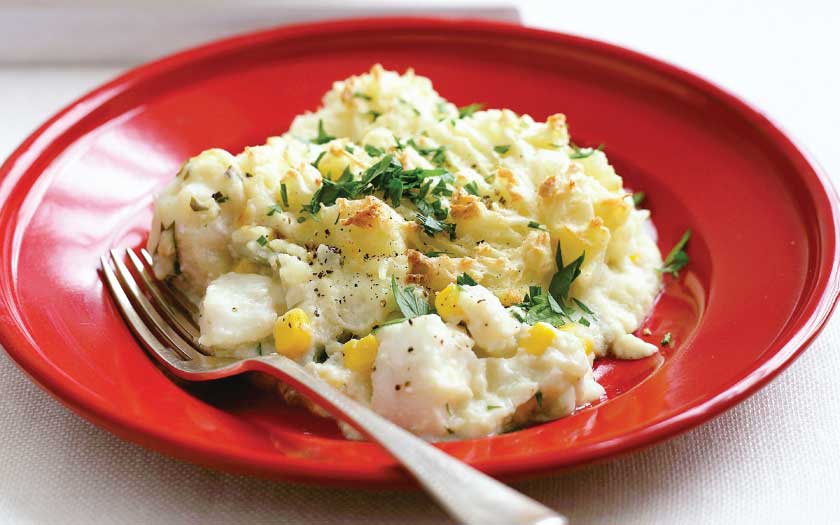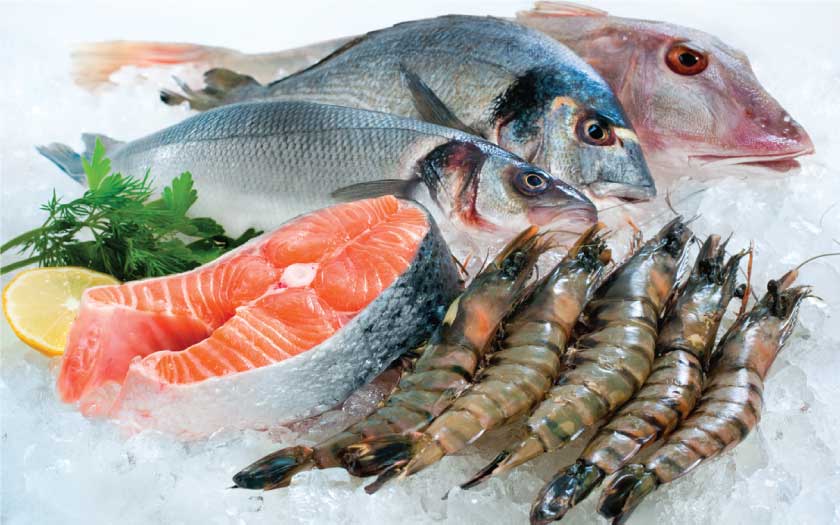Seafood and Pregnancy — The Good and the Bad
On the whole, seafood offers many nutritional benefits especially in terms of protein and Omega 3 fatty acids while being relatively low in saturated fats. There is no doubt that seafood should be an essential part of your diet during pregnancy, but there are some important factors to keep in mind when including all those yummy fish and shellfish in your diet.
Seafood & Mercury content
Mercury is a contaminant from the sea that can affect brain development and the nervous system. It is released into the air from pollution and small amounts fall into our lakes, streams, and oceans. When it accumulates in water, mercury turns into methylmercury, a toxin that absorbs and accumulates in the bodies of fishes and shellfish as they feed. FDA has released guidelines for children, women who are pregnant, and women who are trying to become pregnant. These guidelines state that no more than 12 oz of low mercury fish should be consumed weekly. “Highest” mercury fish should be avoided and “high” mercury fish should be kept to only three 6-oz servings per month.
Seafood is good for your pregnant body
The benefits of Omega 3 fatty acids to a pregnant woman have been strongly established through studies and researches. Studies have proven that women who regularly consumed fish during the first trimester of her pregnancy decreased the risk of having a pre-term birth or having a baby with low birth weight. Omega 3 has also been found to be beneficial in treating mood disorders and post-partum depression. It has been reported that fish consumption during pregnancy has been linked to higher levels of intelligence in children later on in life.
The Food and Drug Administration (FDA) recommends that pregnant women consume up 12 ounces of fish weekly to reap the benefits of Omega 3. A note of caution though, that fish should always thoroughly cook (to about 140 degrees F) before consumption. While shrimp, Pollack, and catfish come recommended during pregnancy, canned fish particularly canned tuna should be limited due to concerns over the mercury contents.
Health caution
The FDA recommends that pregnant and nursing women along with women contemplating pregnancy should steer clear of fish with high mercury content. These include swordfish, tilefish, king mackerel, and shark. The same recommendations hold strong for little children whose bodies are still developing and are particularly susceptible to damage from high mercury consumption.
Pregnant women shouldn’t consume raw or undercooked fish or shellfish for these may contain a host of bacteria and/or parasites such as toxoplasmosis, salmonella, flukes, and worms even! (That sushi doesn’t sound all that attractive now, does it?) Cooking effectively destroys these parasites, and so, there you have it — cook your food before consumption. However, if those taste-buds are still yearning for something sushi-like, there are varieties, or rather, alternatives such as California rolls which contain cooked crab meat, eel meat, and avocados too, for added nutrition.
Avoid at all costs:
Seafood with the highest mercury content
- Marlin
- Tilefish
- Swordfish
- Shark
- King Mackerel
- Tuna (bigeye)
Avoid if possible:
Seafood with high mercury content
- Sea bass (Chilean)
- Bluefish
- Grouper
- Mackerel (Spanish, Gulf)
- Tuna (canned Yellowfin)
Limit:
Seafood with low mercury content
- Bass (Stripped, Black)
- Carp
- Cod (Alaskan)
- Lobster
- Monkfish
- Perch (freshwater)
- Skatefish
- Snapper
- Sea trout
- Tuna (Skipjack)
Enjoy:
Seafood with the lowest mercury content
- Anchovies
- Butterfish
- Catfish
- Clam
- Crab
- Crawfish/crayfish
- Croaker
- Flounder
- Haddock
- Hake
- Herring
- Mackerel (North Atlantic, Chub)
- Mullet
- Oysters
- Perch (ocean)
- Plaice
- Salmon
- Sardines
- Scallops
- Shrimp
- Sole
- Squid
- Tilapia
- Whitefish
Let’s have some fish!

Fish & potato pie
Ingredients
- Mashed potatoes
- 1kg potatoes, peeled
- 50g butter
- 100g cream
- 3 tbsp warm milk
- pinch salt and white pepper
Filling
- 500ml milk
- 250g smoked haddock
- 200g cod
- 1 onion
- 1 bay leaf
- 3 cloves
- 2 leeks, washed and chopped
- 50g butter, plus 25g for dotting on top of the pie
- 1 tbsp olive oil
- 3 tbsp flour
- salt and white pepper
- 100g raw king prawns
- 50g frozen peas
- 1 tbsp finely chopped parsley
- 1 lemon, zest only
Method
- Preheat the oven to 190°C/375°F/Gas 5.
- Cut the potatoes into 5cm chunks and boil until soft. Drain and mash with butter, cream, and warm milk. Season with salt and white pepper. Set aside.
- Heat the milk in a large pan, add the smoked haddock and cod. Cut the onion in half, make an incision in one of the halves and insert the bay leaf and cloves. Place into the pan with the milk and fish. Bring the milk up to boil. Reduce the heat and simmer gently for 6–7 minutes.
- Meanwhile, finely chop the remaining half onion and the leeks. Heat the butter with the olive oil in a small frying pan and gently fry the onion and the leeks for 4–5 minutes to soften, but not brown.
- Remove the fish from the pan, and set aside to cool slightly. Keep the milk in
the pan. - Add the flour to the leeks and stir well to combine. Fry for one minute, stirring frequently. Gradually spoon in the milk from poaching the fish, and stir it in well each time. Add all the milk in this way, and heat gently until the sauce has thickened.
- Taste the sauce for seasoning, and add more salt or pepper if necessary.
- Break the fish into chunks, being careful to feel for any bones and remove any skin, then fold the fish pieces into the sauce. Add the prawns and peas to the mixture.
- Spoon the fish mixture into the bottom of an ovenproof dish. Sprinkle fresh chopped parsley and grated lemon zest over the top.
- Carefully top with the cooled mashed potato using a fork to smooth it over. Dot the pie with the remaining half of the butter and place in the oven for 25–30 minutes, or until golden-brown and bubbling.


